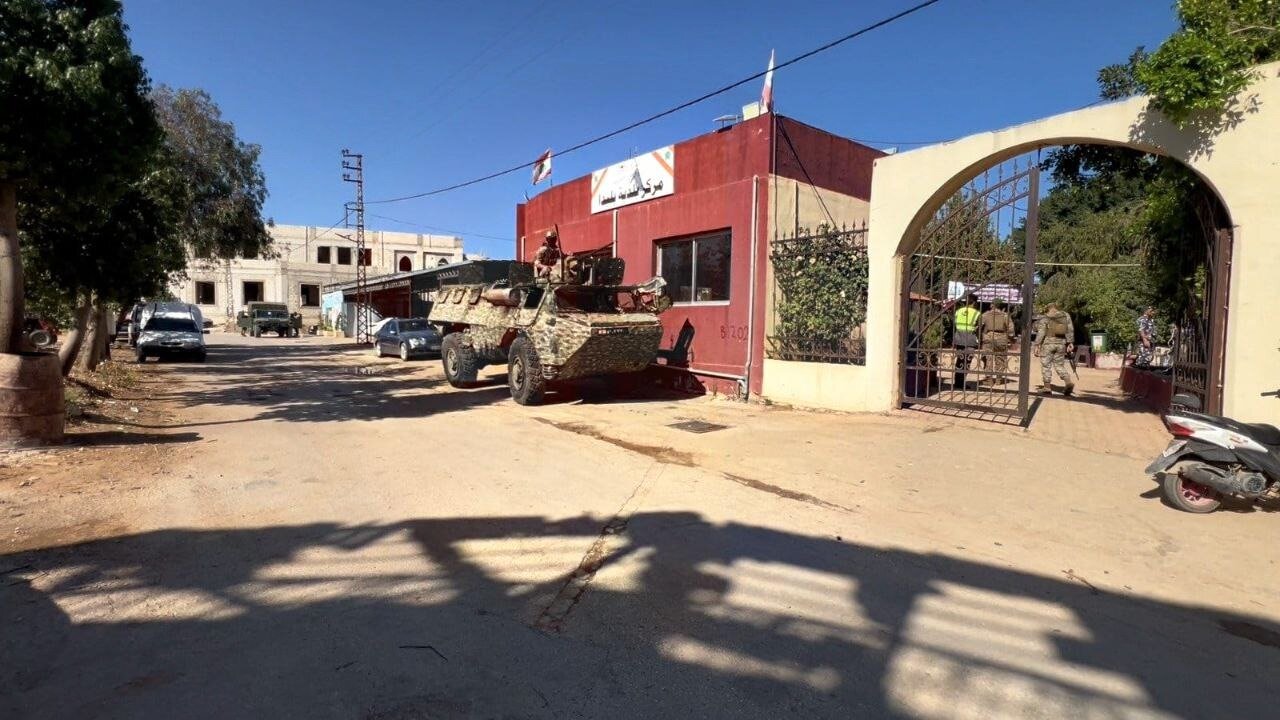President Aoun orders response as Senator Graham justifies Israeli incursions

BEIRUT — Tensions on the Lebanese-Palestinian border remain high, as Israeli forces repeatedly violate the cessation of hostilities. Exploiting weak international monitoring and Lebanon’s limited ability to enforce sovereignty, Israel targets civilians and state institutions alike.
The recent assassination of municipal employee Ibrahim Salameh in Blida revealed the fragility of the border and highlighted the complex interplay between the Lebanese state, Hezbollah, and Israel.
The attack was a deliberate signal: southern Lebanon remains a dangerous zone where even civilian officials are at risk.
Analysts point to Israel’s dual goal—undermining the Lebanese state’s credibility and testing the army’s deterrence capacity.
President Joseph Aoun’s swift decision to authorize the army to confront any Israeli aggression reaffirmed Lebanon’s sovereignty while operating within its constrained military and political framework.
Hezbollah’s strategy of ambiguity complements state action. By remaining unpredictable in timing and response, the Resistance (Hezbollah) forces Israel into uncertainty.
Key elements include disciplined retaliation, secrecy regarding capabilities, targeted messaging, and leveraging political vacuums to allow the state limited visibility without weakening deterrence. This strategic opacity raises the cost of Israeli operations, keeping Tel Aviv on edge!
Lindsey Graham’s endorsement of Israeli incursions
U.S. Senator Lindsey Graham, a staunch pro-Israel advocate, publicly justified the Blida strike and other Israeli operations, framing them as measures to suppress Hezbollah!
Graham described the organization as “a radical, Islamic terrorist entity tied to Iran that has been threatening and attacking Israelis, Americans, and Lebanese for decades,” claiming Israel’s incursions aim to prevent Hezbollah’s resurgence and protect Israeli citizens. Graham also claimed that if Hezbollah were disarmed, “Israel’s military actions would cease.”
He further criticized Lebanese calls for Hezbollah to turn over its weapons to the army, warning that cooperation between the army and Hezbollah against Israel would undermine U.S. efforts to stabilize Lebanon.
Calling the conflict a “religious war,” Graham urged Israel to “do whatever you must to defend yourselves” and justified extreme military measures. His statements, including posts on X, give Israel clear political backing, legitimizing strikes inside Lebanon under the pretext of countering Hezbollah.
Balancing deterrence, sovereignty, and regional stability
Lebanon faces the challenge of asserting sovereignty while deterring Israeli aggression without triggering full-scale war.
President Aoun’s empowerment of the army demonstrates the state’s commitment to protecting civilians and maintaining authority, complementing Hezbollah’s strategy of ambiguity. This combination ensures calculated deterrence while raising the cost of Israeli actions.
The Blida attack also underscores Israel’s strategic dilemma. Once able to anticipate Hezbollah’s moves, Israeli leadership now faces unpredictability in timing and scale of responses, increasing the risk of miscalculation and regional escalation.
Hezbollah’s flexibility, contrasted with Graham’s support for Israeli strikes, underscores the international pressures Lebanon faces in defending its territory.
Maintaining internal stability requires coordination between the army and Hezbollah, allowing Lebanon to deter aggression while preserving political and institutional credibility.
Strategic ambiguity, combined with state authority, will ensure Israeli violations will be met with calculated responses rather than open confrontation, minimizing destruction while safeguarding sovereignty.
Ultimately, Lebanon’s capacity to balance resistance, state authority, and regional diplomacy will determine its security.
President Aoun’s decisive stance and army activation reinforce national resilience, while Graham’s statements illustrate external pressures and ideological narratives Lebanon must contend with.
Preserving strategic deterrence without escalation remains crucial in protecting Lebanese sovereignty against ongoing Israeli aggression.
Leave a Comment